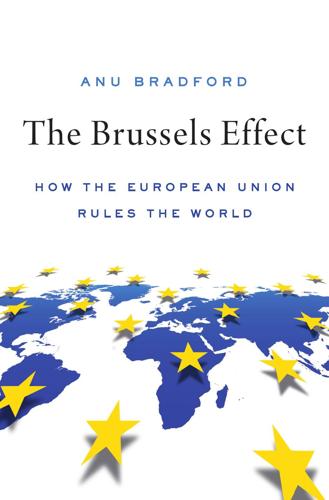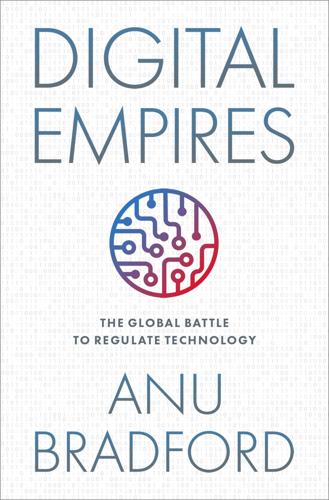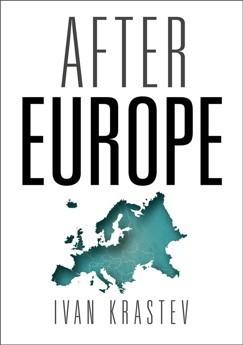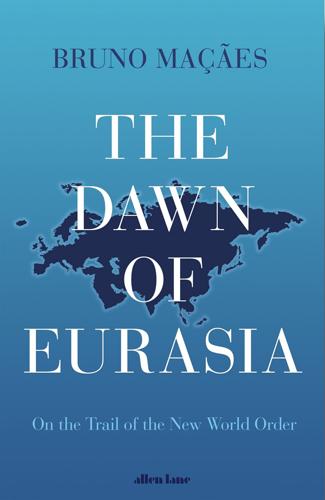The Brussels Effect
description: the phenomenon where European Union regulations become the global standard due to market size
5 results

The Brussels Effect: How the European Union Rules the World
by
Anu Bradford
Published 14 Sep 2020
And, the more consequential the welfare effects associated with the Brussels Effect, the more important the conversation of how long lasting the Brussels Effect will be. 8 Is the Brussels Effect Beneficial? this book has thus far demonstrated the existence and importance of the Brussels Effect in many areas of global regulatory policy, and revealed the powerful impact the EU has on global markets as a result. When considering this broad impact, an important question arises: Is the prevalence of the Brussels Effect desirable or undesirable? Of course, since the Brussels Effect creates both winners and losers, the answer to this question likely depends on whom one asks.
…
However, when these assumptions do not hold, the Brussels Effect becomes a less objectionable, and more necessary—second best—alternative. Foreign Attempts to Constrain the Brussels Effect As the earlier discussion suggests, the Brussels Effect produces both costs and benefits. While many of the costs that the Brussels Effect imposes are offset by its benefits, because those costs and benefits are distributed in uneven ways, it is certain the Brussels Effect will continue to be a target for criticism. However, for those who view the Brussels Effect as detrimental to their welfare, the opportunities for challenging EU regulations can be limited.
…
You may order this or any other Oxford University Press publication by visiting the Oxford University Press website at www.oup.com. Äidille ja isälle For mom and dad Contents Preface Introduction: The Brussels Effect Preface to Part One: Theory 1.How the EU Became a Global Regulatory Power 2.The Brussels Effect 3.The Brussels Effect in Context Preface to Part Two: Case Studies 4.Market Competition 5.Digital Economy 6.Consumer Health and Safety 7.Environment Preface to Part Three: Assessment 8.Is the Brussels Effect Beneficial? 9.The Future of the Brussels Effect Notes Index Preface the idea for this book was born as a reaction to the nearly constant public commentary about the European Union’s demise or global irrelevance that permeates modern popular discourse.

Digital Empires: The Global Battle to Regulate Technology
by
Anu Bradford
Published 25 Sep 2023
But there is also a specific concern among some companies and governments regarding the externalization of that regulatory model via the Brussels Effect. In some cases, this resentment of the Brussels Effect has caused foreign companies and foreign governments to look for ways to counter the EU’s digital regulations that adversely affect them. But as described below, these efforts have achieved limited success to date. Common Criticism of the Brussels Effect The main criticism against the globalization of the European rights-driven regulatory model relates to the so-called multiplier effect, whereby the Brussels Effect globalizes not only the benefits but also any costs of the EU model.
…
According to Sherry, “as global firms adapt to the EU’s data protection law, we’re hopeful that all consumers will benefit from stricter data security and gain a reasonable measure of control over their personal information that so many others prosper from the EU’s strong regulation.”198 This suggests that any foreign criticism of the Brussels Effect is unlikely to be uniform, and examples of foreign stakeholders embracing the reach of the European rights-driven regulatory model abound as well. How Tech Companies and Governments Are Seeking to Counter the Brussels Effect Even when foreign companies or governments resent the EU’s global regulatory power, it is difficult for them to do much about it, highlighting why the Brussels Effect has enabled the EU to become a major player alongside China and the US in shaping today’s global digital economy. Being market-driven, the Brussels Effect is not subject to political negotiations.
…
After all, American citizens cannot hold European politicians accountable for decisions they disagree with, compromising their political autonomy. This countermajoritarian element inherent in the Brussels Effect arguably undermines the ability of foreign governments to serve their citizens in accordance with their democratically established preferences. The US government may therefore argue that the Brussels Effect constrains its regulatory freedom, undermining US sovereignty in the process. Even if one accepts that the Brussels Effect compromises foreign governments’ regulatory autonomy, some may still argue that it does not compromise democracy. Many Americans worry that extensive business lobbying has distorted the American democratic process and legislative agenda, especially after the US Supreme Court’s ruling in Citizens United paved the way for unlimited corporate spending to influence elections.190 The EU’s legislative process, while not flawless nor perfectly democratic,191 is less susceptible to corporate influence when compared to the legislative process in the United States.

Four Battlegrounds
by
Paul Scharre
Published 18 Jan 2023
., Chinese Power and Artificial Intelligence: Perspectives and Challenges (Abingdon, Oxon; New York, NY: Routledge, 2022). 7Russia and China announced a “no limits” partnership: “Joint Statement of the Russian Federation and the People’s Republic of China on the International Relations Entering a New Era and the Global Sustainable Development,” February 4, 2022, http://en.kremlin.ru/supplement/5770. 8European nations are leaning into regulating AI: Anu Bradford, The Brussels Effect (Columbia Law School, 2012), https://scholarship.law.columbia.edu/cgi/viewcontent.cgi?article=1275&context=faculty_scholarship; Anu Bradford, The Brussels Effect: How the European Union Rules the World (Oxford Scholarship Online, 2020), https://oxford.universitypressscholarship.com/view/10.1093/oso/9780190088583.001.0001/oso-9780190088583. 1. THE NEW OIL 11Power: John J.
…
Now Comes the Hard Part,” Philadelphia Tribune, June 15, 2020, https://www.phillytrib.com/news/business/tech-companies-push-for-nationwide-facial-recognition-law-now-comes-the-hard-part/article_fe78e04e-e8be-5aab-9402-00203a44510f.html. 111lawsuits against a slew of government agencies: American Civil Liberties Union, “ACLU Challenges FBI Face Recognition Secrecy,” news release, October 31, 2019, https://www.aclu.org/press-releases/aclu-challenges-fbi-face-recognition-secrecy; American Civil Liberties Union, “ACLU Challenges DHS Face Recognition Secrecy,” news release, March 12, 2020, https://www.aclu.org/press-releases/aclu-challenges-dhs-face-recognition-secrecy. 111government regulation is needed: Brad Smith, “Facial Recognition Technology: The Need for Public Regulation and Corporate Responsibility,” Microsoft on the Issues (blog), July 13, 2018, https://blogs.microsoft.com/on-the-issues/2018/07/13/facial-recognition-technology-the-need-for-public-regulation-and-corporate-responsibility/; “We Are Implementing a One-Year Moratorium on Police Use of Rekognition,” Amazon, June 10, 2020, https://blog.aboutamazon.com/policy/we-are-implementing-a-one-year-moratorium-on-police-use-of-rekognition; Jay Greene, “Microsoft Won’t Sell Police Its Facial-Recognition Technology, Following Similar Moves by Amazon and IBM,” Washington Post, June 11, 2020, https://www.washingtonpost.com/technology/2020/06/11/microsoft-facial-recognition/. 111regulation could “strangle business”: Forbes Technology Council, “15 Unexpected Consequences of GDPR,” Forbes, August 15, 2018, https://www.forbes.com/sites/forbestechcouncil/2018/08/15/15-unexpected-consequences-of-gdpr/#68020b3c94ad. 112“race to the top”: Anu Bradford, The Brussels Effect (Columbia Law School, 2012), https://scholarship.law.columbia.edu/cgi/viewcontent.cgi?article=1275&context=faculty_scholarship; Anu Bradford, The Brussels Effect: How the European Union Rules the World (Oxford Scholarship Online, 2020), https://oxford.universitypressscholarship.com/view/10.1093/oso/9780190088583.001.0001/oso-9780190088583. 112AI regulations: “A European Approach to Artificial Intelligence,” European Commission, updated August 31, 2021, https://digital-strategy.ec.europa.eu/en/policies/european-approach-artificial-intelligence; “Proposal for a Regulation of the European Parliament and of the Council Laying Down Harmonised Rules on Artificial Intelligence (Artificial Intelligence Act) and Amending Certain Union Legislative Acts,” Document 52021PC0206 (European Union legislative document), 2021, https://eur-lex.europa.eu/legal-content/EN/TXT/?

After Europe
by
Ivan Krastev
Published 7 May 2017
The EU developed institutional mechanisms of peer pressure and carrot-and-stick policies that have the capacity to prevent the backsliding of democratization in its new members. This grand expectation, however, has turned out to be wrong. The electoral victory of Viktor Orbán in Hungary and Jarosław Kaczyński in Poland and the “illiberal turn” in most of central Europe has forced many commentators to upend their view of the “Brussels effect” on the process of democratic consolidation in central Europe. In the view of political scientists James Dawson and Sean Hanley, marrying the process of democratization to the process of European integration has contributed to the emergence of fair-weather democracies in the East with political elites that lack genuine commitments to liberal values.8 Even more important is the effect of the European Union serving as a kind of safety net, which mitigates against risk-taking (keeping countries from advancing irresponsible policies) but incentivizes voters to support irresponsible political parties and leaders as a way of signaling disappointment and anger.

The Dawn of Eurasia: On the Trail of the New World Order
by
Bruno Macaes
Published 25 Jan 2018
Fyodor Lukyanov, ‘Putin’s Foreign Policy: The Quest to Restore Russia’s Rightful Place’, Foreign Affairs, May/June 2016, p. 34, www.foreignaffairs.com. 3. James Reilly, ‘China’s Economic Statecraft: Turning Wealth into Power’, Lowry Institute Analysis, November 2013, p. 5. 4. William J. Norris, Chinese Economic Statecraft (Cornell University Press, 2016), pp. 62–3. 5. Anu Bradford, ‘The Brussels Effect’, Northwestern University Law Review (2012). 6. Mark Entin and Ekaterina Entina, ‘The European Part of Russia’s Geopolitical Project: Correcting the Mistakes. Part 2’, Russian International Affairs Council, 29 April 2016. 7. ‘Absorb and Conquer: An EU Approach to Russian and Chinese Integration in Eurasia’, European Council on Foreign Relations, June 2016. 3.